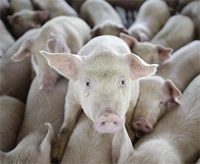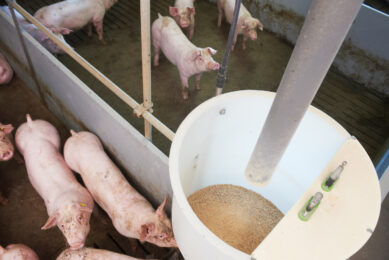Piglet diets: Fermented soybean meal may replace fish meal

A new study has suggested that fermented soybean meal and enzyme-treated soybean meal may replace fish meal in weaning pig diets.
“The price of fish meal has exploded and is causing producers to search for new options for weanling pig diets. Pigs are traditionally fed diets containing relatively large amounts of animal proteins such as fish meal from weaning up to 18 kg when they can digest traditional soybean meal,” said Hans H. Stein of the University of Illinois.
The fermentation and enzyme treatment process helps remove some of the antinutritional factors found in traditional soybean meal and other compounds that are not easily digested by young pigs.
Controlling costs
Stein said these new sources of soybean meal might be the answer producers are looking for to keep costs down without sacrificing digestibility of important amino acids.
“In our study, we measured the digestibility of amino acids in these two new sources of soybean meal in comparison to fish meal, casein and soy protein isolate.
“We observed that enzyme-treated soybean meal has even better digestibility of amino acids than conventional soybean meal. It appears the enzyme treatment increases digestibility.
“Fermented soybean meal has the same digestibility as standard soybean meal, so we now know that fermentation doesn’t reduce digestibility,” he said.
“With the high cost of fish meal and concerns about its future availability, I believe these are two good options for weanling pig diets. They are comparable in digestibility to soy protein isolate, the gold standard protein source that is only used in human nutrition,” added Stein.
“They are comparable in digestibility to soy protein isolate, the gold standard protein source that is only used in human nutrition.”
Energy and phosphorus
In the future, Stein and his team will conduct more research on fermented soybean meal and enzyme-treated soybean meal to look at the digestibility of energy and phosphorus. They also plan to conduct performance studies so they can fine-tune inclusion rates.
“Ileal digestibility of amino acids in conventional, fermented, and enzyme-treated soybean meal and in soy protein isolate, fish meal and casein fed to weanling pigs,” by S.K. Cervantes-Pahm and H.H. Stein both researchers at the University of Illinois, was published in the Journal of Animal Science.











